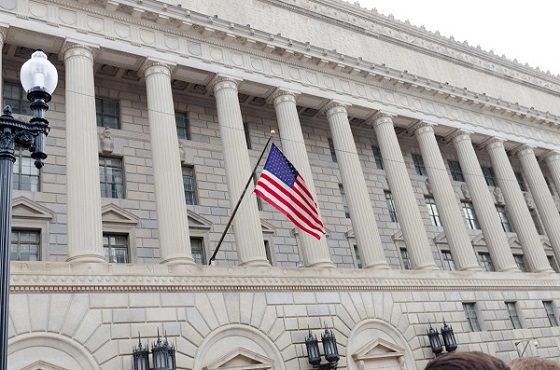City of Red Deer
Blue and Black Cart Collection begins this week. Here’s everything you need to know!

From The City of Red Deer
Blue and Black Cart collection kicks off week of May 6
The carts have all been rolled out, residents had some time to get acquainted and now Blue and Black Cart collection is set to start next week. Together, with the Green Cart, it completes Red Deer’s cart program implementation.
Throughout the months of March and April, Blue and Black Carts were rolled out to homes who currently receive individual garbage, recycling and Green Cart collection. The Blue Cart replaces the blue box, and
the Black Cart is for all other household garbage.
“We are excited to see Blue and Black cart collection start next week,” said Janet Whitesell, Waste Management Superintendent. “We have worked hard to create a program that has been tested, tweaked
and modified to ensure we are launching a program that will work for the residents of Red Deer.” Collection for the Blue and Black Cart will take place every other week, on alternating weeks. That means
garbage will be collected one week and recycling collected the next week. Green Cart collection remains weekly. Residents received a colour coded calendar to make keeping track easy, and they can sign up for
weekly notifications through Notify Red Deer (reddeer.ca/notifyreddeer).
The Blue Cart replaces blue boxes, and in general, everything that used to go in the blue box can go in the Blue Cart, with the exception of glass. Place paper, cardboard, metal cans and plastics numbered one
through seven in the Blue Cart. The Black Cart is for remaining garbage that can’t go in the Blue or Green Cart, which in general is things like Styrofoam, disposable diapers, and unnumbered plastics. Detailed
information was attached to the Black Cart delivered to each home, and more information is always available at reddeer.ca/carts.
“Since April of 2018 when the Green Cart program launched, we have reduced the amount of garbage sent to landfill from households by 27 per cent,” said Whitesell. “For three months last year, we collected more in the Green Cart than we collected garbage at the curb which means a significant amount of material was composted and those nutrients returned to agricultural soils, instead of being landfilled.”
“The three cart system streamlines collection, and the way households bring their waste out to the curb or the alley,” Whitesell continued. “We are confident that we have a program that will not only reduce the
amount of waste going to our landfill, but engage and inspire residents to take steps to reduce their household waste, and our overall greenhouse gas emissions.”
Residents can learn more about the new cart program at a presentation on Tuesday, May 14 at 6:30 p.m. at Red Deer College’s Alternative Energy Lab, along with representatives from the Recycling Council of Alberta who will talk about system-wide opportunities in how Alberta handles waste.
City of Red Deer
Over 25 Canadian cities support initiative designating December as Christian Heritage Month

From LifeSiteNews
Major cities that have signed on include Ajax, Durham, Sudbury, Mississauga, Ottawa, and Niagara Falls in Ontario, Alberta municipalities Red Deer and Okotoks, and Regina and Saskatoon in Saskatchewan. In British Columbia, Whistler and Prince George have also signed the petition.
More than 25 Canadian municipalities signed onto a proclamation declaring December as “Christian Heritage Month.”
The proclamation also asks provinces to take the initiative to declare the last month of the year in recognition of Christianity as an important part of Canadian heritage given the fact other faiths have special months of their own.
Major cities that have signed on include Ajax, Durham, Sudbury, Mississauga, Ottawa, and Niagara Falls in Ontario, Alberta municipalities Red Deer and Okotoks, and Regina and Saskatoon in Saskatchewan. In British Columbia, Whistler and Prince George have also signed the petition.
All of the cities have pledged to bring forth legislation that enshrines December as Christian Heritage Month into local law. Many have already done so.
The move by Canadian cities comes after the federal government and provincial governments have yet to proclaim December as Chrisitan Heritage Month.
According to the Christian Heritage Month Initiative, its mission is to have December “declared as Christian Heritage Month, recognizing the values of love, service, and compassion that define the Christian community.”
“The Christian Heritage Month Initiative is a dynamic, multi-denominational movement dedicated to celebrating the vibrant cultural, social, and artistic contributions of Canada’s Christian community,” the initiative says.
The initiative is under the leadership of Jay and Molly Banerjei, who are behind the Christian Music Festival. The organization says that the initiative “unites diverse voices and fosters a sense of belonging, enriching our nation’s identity and promoting inclusivity for all.”
Looking at Mississauga’s recent council motion that designates December as Christian Heritage Month, councillors have said its province under Premier Doug Ford should do the same.
Mississauga’s motion, which has been sent to Ford, was brought forth on October 30 by Councillor Brad Butt.
It reads that Christianity is among the “diverse faiths followed by Mississauga residents and one of the most followed religions in Canada and Mississauga. Christians have made valuable contributions to the cultural, social, religious, and humanitarian fabric of our city and have played an important role in shaping our diverse community.”
The Mississauga motion also makes a point that December is “marked by significant events and celebrations in the Christian calendar, commencing with the observance of Advent and culminating in the celebration of the birth of Jesus Christ, which is also known as Christmas.”
“Christian organizations and places of worship in Mississauga offer religious services, unique events, and initiatives that highlight a strong Christian heritage during the month of December,” and it’s “also widely associated with the tradition of gift giving and the gathering of family, friends, and people of all faiths, during the Christmas season,” its councillors wrote.
“Recognizing the month of December, which is a significant month in the Christian calendar, as Christian Heritage Month provides an opportunity for all residents to celebrate the history, traditions, and teachings of the Christian faith, promoting understanding and appreciation of the diverse religious and cultural heritage of our city.”
Canada is historically a nation founded on Christian ideals and principles. European settlers who came to Canada from France and then later from what is the modern-day United Kingdom were Christian and included missionaries who tried to spread the faith to the local Indigenous populations.
Canada has observed Christmas since 1641, well before its official founding, according to some historical records.
As reported by LifeSiteNews, Conservative Party of Canada (CPC) MPs have urged all Canadians to support a petition that calls on the federal government to proclaim December as “Christian Heritage Month.”
Last year, CPC MP Marilyn Gladu introduced a Private Member’s Bill C-369 that would designate December as “Christian Heritage Month,” saying this is only the “fair and right” thing to do.
The bill reads that “In the negotiations that brought about Confederation, Canada was originally named ‘Dominion of Canada,’ a name reportedly inspired by the passage in the Bible (King James Version) at Psalm 72:8, which says, ‘He shall have dominion also from sea to sea, and from the river unto the ends of the earth.’”
The bill states that December in Canada marks “significant events and celebrations in the Christian calendar, from the beginning of Advent to the celebration of the birth of Jesus Christ; And whereas, according to Statistics Canada’s 2021 Census of Population, Christianity is the largest religion in Canada, with over half of Canadians identifying as Christian.”
City of Red Deer
City Council looking for options to reduce hundreds of encampments

New actions for response to urban encampments being considered by City Council
New actions for The City’s response to urban encampments will be considered by Council on Monday, with a focus on interim and long-term solutions to homelessness. The proposed actions include everything from maintaining a balanced mitigation strategy to exploring interim housing solutions.
The report comes in response to Councillor Lee’s Notice of Motion re: Urban Encampment Responses that Council approved during the 2024 budget debate. The report reviews the past five years of data, analyzes service levels, and evaluates Corporate Administrative Policy 3141C – Urban Encampment Response. The key recommendations in the report focus on providing a balanced approach to mitigating the effects of encampments while working towards long-term solutions for homelessness. These recommendations include:
- Consistent Mitigation: Maintain The City’s current approach to encampment responses, ensuring the most balanced mitigation strategy available at this time to protect public lands while supporting vulnerable individuals.
- Advocacy for Shelter Strategy: Council will continue to advocate to the Government of Alberta for a comprehensive shelter strategy, including the development of a low-barrier 24/7 emergency shelter with a Recovery-Oriented System of Care.
- Review of Transitional Housing: Request that the Housing and Homelessness Integrated Committee (HHIC) review the potential for new transitional housing infrastructure as an interim solution to support individuals transitioning out of homelessness.
“The City’s current policy is still achieving its target of having sites cleaned within 14 days. Despite a substantial increase in encampments, responses have continued to be increasingly efficient, largely due to enhanced relationships and experience levels,” said Jodi Kelloway, Acting Superintendent, Social Wellness and Integration Supports. “In recent months, we have seen a significant rise in the number of people experiencing homelessness, with shelters operating at or near capacity. Many individuals living in encampments have limited or no alternative options available. It is important that we continue to improve our response while building capacity within the housing continuum that considers current realities and the unique needs of community members who are unsheltered. The actions we propose in today’s report are about building and expanding on what we already do.”
Under the current policy, The City has a level of service that urban encampments, debris, and belongings are to be removed within 14 days of an initial report, 90 per cent of the time. While The City’s current response to urban encampments is effective, with 98 per cent of camps being cleaned up within 14 days, the number of encampments continues to rise. In 2023 alone, 881 encampments were dismantled, with a projected overall increase of 75 per cent by the end of 2024.
Costs related to encampment clean-up have reached approximately $2.87 million over the last five years, shared among several City departments, including Parks, Public Works, and Emergency Services. Despite increased efficiency, the growing number of encampments presents ongoing challenges and concerns.
The City’s Encampment Assertive Outreach team continues to engage individuals living in encampments, providing referrals to social and housing services. However, the report notes that many individuals face barriers to accessing shelter due to personal circumstances, such as the need for privacy, the ability to be with their partners, accommodation for pets or possessions, highlighting the ongoing need for tailored solutions.
Councillor Lee’s January 8, 2024, Notice of Motion called for administration to consider the following:
- Reducing the time to dismantle encampments.
- Preventing establishment of encampments.
- Connecting rough sleepers with social supports and understanding overall community shelter capacity.
- Develop recommendations for individuals setting up or using encampments to encourage them to seek alternative shelter.
- How much money The City has spent on the cleanup of encampments over the past five years, and how much subsidy, if any, has been provided by other levels of government.
- Including the continuum of housing that is currently available in Red Deer and what is needed.
- That Administration report to council on the progress of the review of Corporate Administrative Policy 3141C – Urban Encampment Response”.
“The City of Red Deer is committed to supporting the health and safety of those sleeping rough, citizens who are enjoying parks, trails and public spaces, and staff responding to encampments,” said City Manager Tara Lodewyk. “Unfortunately, urban encampment work is a very short-term solution to a very complex health, housing, and public safety need in our community. The ability to reduce homelessness in Red Deer is significantly impacted by the lack of affordable and supportive housing supply. Until this is resolved, we will continue in this cycle of clean up.”
More detailed information is available in the City Council report located on the Council Meetings and Schedule page.
-

 Business1 day ago
Business1 day agoSenator Introduces Bill To Send One-Third Of Federal Workforce Packing Out Of DC
-

 MAiD1 day ago
MAiD1 day agoNearly half of non-terminally ill Canadians who choose euthanasia say they are lonely
-

 Frontier Centre for Public Policy1 day ago
Frontier Centre for Public Policy1 day agoChristmas: As Canadian as Hockey and Maple Syrup
-

 Artificial Intelligence2 days ago
Artificial Intelligence2 days agoUS House report exposes Biden admin push to use AI for censorship of ‘misinformation’
-

 Business1 day ago
Business1 day agoTaxpayers release Naughty and Nice List
-

 Business2 days ago
Business2 days agoCanada’s chief actuary fails to estimate Alberta’s share of CPP assets
-

 Internet2 days ago
Internet2 days agoGov’t memo admits Canadians are shifting to independent news due to distrust of media, not Russian ‘bots’
-

 Business2 days ago
Business2 days agoBiden announces massive new climate goals in final weeks, despite looming Trump takeover






